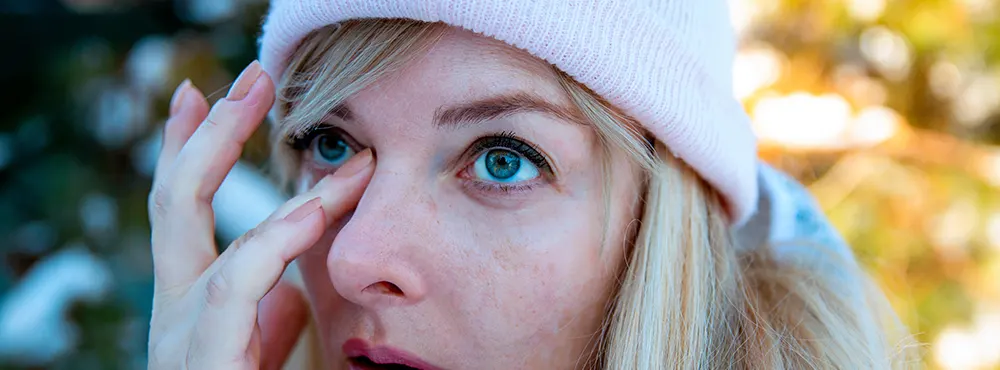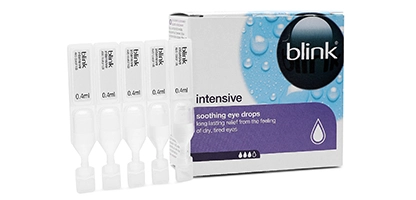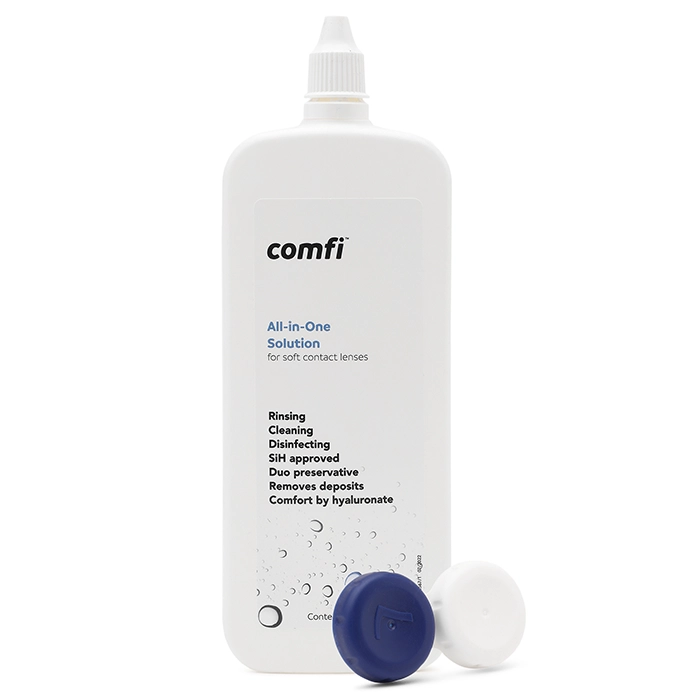Redness and Irritation
Exposure to cold wind can cause the tiny blood vessels on the surface of your eyes to constrict. This happens as your body tries to conserve heat, leading to redness and irritation. While eye redness is usually harmless, it can be a cosmetic concern for some individuals. This is a common issue during winter walks or outdoor activities.
Excessive Tearing
Some people experience excess tearing during winter, unlike dry eyes. When cold air hits your eyes, they produce more tears to maintain moisture. This can lead to teary eyes. While it is not harmful, it can affect your vision if not handled properly.
Conjunctivitis (Pink Eye)
A more common eye infection in winter is caused by bacterial infection - conjunctivitis (pink eye). It occurs due to the inflammation of the conjunctiva (transparent membrane that lines the eyelid and eyeball). In this situation, blood vessels in the conjunctiva get irritated and swell up, leading to pink eye.
However, pink eye in winter can also be caused by dirt, smoking, chlorine or allergens. This infection can last from 10 days to two weeks. It is highly recommended to see an ophthalmologist if you have symptoms like excessive watery eyes, redness, or discharge.
Types of Conjunctivitis
Let’s understand the different types of conjunctivitis.
Viral Conjunctivitis
Most cases of conjunctivitis during winter happen due to viral infections such as adenovirus. This virus typically gets active due to the common cold and can spread easily from person to person.
Bacterial Conjunctivitis
Bacterial conjunctivitis is rare, very contagious and easily spread by touch. According to the CDC (Centers for Disease Control and Prevention), this type of conjunctivitis is more common in children than adults.
Allergic Conjunctivitis
Allergic conjunctivitis is non-contagious. It is a reaction caused by dust, smoke, pollen from plants and trees and animal dander. Certain types of perfume, cosmetics or medications can also trigger eye allergies.
Snow Blindness or Photokeratitis
Snow reflects a significant amount of UV radiation, which can harm your eyes. Snow blindness, or photokeratitis, is a painful condition caused by overexposure to ultraviolet (UV) rays. This often occurs when sunlight reflects off the snow. It can occur during cold, sunny days when people spend a lot of time outdoors without eye protection. Symptoms of snow blindness include extreme sensitivity to light, blurred vision, and a gritty feeling in the eyes. To prevent snow blindness, wear sunglasses with UV protection. You can find UV sunglasses from top brands at great prices at Feel Good Contacts, with superfast delivery.
Contact Lens Discomfort
Contact lens wearers might experience discomfort in cold weather. Lenses often dry out and become uncomfortable because of the lower moisture in the air. It's important to keep your lenses clean and hydrated with the right solution for your lens type.

 Offers
Offers Account
Account
 Favorite
Favorite
 Basket
Basket

 OFFERS
OFFERS

















